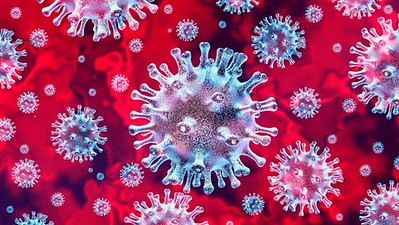Empower women to combat the spread of HIV/AIDS

DURBAN – “Empowering women does not disempower men”. This was the message from Dr Geeta Rao Gupta in a stirring address to the AIDS 2000 conference yesterday (Wednesday) on the role of gender and sexuality in the transmission of HIV/AIDS.
Dr Gupta, who is based at the International Centre for Research on Women (ICRW) in the USA, emphasised the importance of AIDS programmes that sought to empower women in order to combat the spread and impact of HIV/AIDS.
“Power is not a finite concept. More power to one invariably means more power to all. Empowering women empowers households, communities and entire nations,” she said.
Gupta said gender and sexuality were relevant in the spread of HIV as well as in the way in which they influenced treatment, care and support.
In a world in which men invariably had greater control over where, when and how sex took place, women would always be vulnerable. “Gender roles that disempower women and give men a false sense of power are killing our youth, and women and men in their most productive years.” To resounding applause she said, “this must change!”
Gupta said this imbalance in power between women and men, and the way in which gender was defined, curtailed women’s sexual autonomy and expanded men’s sexual freedom. The result was a greater increase in the risk to both women and men to HIV.
Societal norms all too often expected women to be silent receptacles of sex. Women’s economic vulnerability also meant that they exchanged sex for survival.
Unequal power balances did not only affect women’s vulnerability to HIV/AIDS, said Gupta. It also increased men’s vulnerability to HIV infection because the pressure to be a “real man” often implied multiple partners exposing men to greater risk of HIV infection.
Socialisation which taught men to be self-reliant, not to show their emotions and not to seek help in times of stress was likely to reduce the chances that they would seek assistance or advice regarding safer sex practices.
Gupta said in order to address the impact of gender and sexuality on the spread of HIV/AIDS interventions should avoid reinforcing damaging gender or sexual stereotypes.
Ideally, HIV/AIDS programmes should try to transform gender roles and create a more gender-equitable relationships.
She rejected the argument that changing gender roles to equalise the power between men and women conflicted with multiculturalism and diversity in society. She said changing gender roles did not challenge a society’s culture, but rather its customs and practices.
“I believe that customs and practices that seek to subordinate women and trap men in damaging patterns of sexual behaviour are based on a biased interpretation of culture that serves narrow interests,” said Gupta. – Health-e News
Author
Republish this article
This work is licensed under a Creative Commons Attribution-NoDerivatives 4.0 International License.
Unless otherwise noted, you can republish our articles for free under a Creative Commons license. Here’s what you need to know:
You have to credit Health-e News. In the byline, we prefer “Author Name, Publication.” At the top of the text of your story, include a line that reads: “This story was originally published by Health-e News.” You must link the word “Health-e News” to the original URL of the story.
You must include all of the links from our story, including our newsletter sign up link.
If you use canonical metadata, please use the Health-e News URL. For more information about canonical metadata, click here.
You can’t edit our material, except to reflect relative changes in time, location and editorial style. (For example, “yesterday” can be changed to “last week”)
You have no rights to sell, license, syndicate, or otherwise represent yourself as the authorized owner of our material to any third parties. This means that you cannot actively publish or submit our work for syndication to third party platforms or apps like Apple News or Google News. Health-e News understands that publishers cannot fully control when certain third parties automatically summarise or crawl content from publishers’ own sites.
You can’t republish our material wholesale, or automatically; you need to select stories to be republished individually.
If you share republished stories on social media, we’d appreciate being tagged in your posts. You can find us on Twitter @HealthENews, Instagram @healthenews, and Facebook Health-e News Service.
You can grab HTML code for our stories easily. Click on the Creative Commons logo on our stories. You’ll find it with the other share buttons.
If you have any other questions, contact info@health-e.org.za.
Empower women to combat the spread of HIV/AIDS
by healthe, Health-e News
July 13, 2000
MOST READ
Social media for sex education: South African teens explain how it would help them
Hunger and mental health: study looks at how families cope with food insecurity
There’s more to self-care than scented candles or massages, it’s a key public health tool
Access to clean water and stable electricity could go a long way to addressing rising food poisoning in SA
EDITOR'S PICKS
Related

HIV remains a leading killer in Africa despite medical breakthroughs – how to eliminate it


